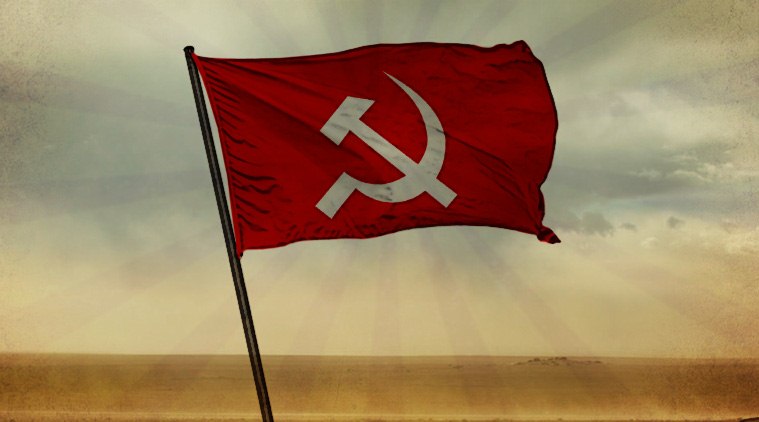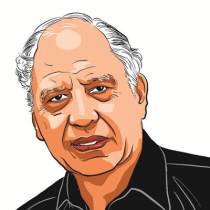In Good Faith: To believe, or not to believe
No belief system is worth veering to the extremes for. The political history of countries like Russia and Saudi Arabia bears testimony.

Where is communism today? What has happened to it, the world over? How are the predatory rightists swallowing not just nations and their electorates, but also philosophies? How has Karl Marx been sent to oblivion by people like Donald Trump? President Ronald Reagan and Prime Minister Margaret Thatcher had tried it and not fully succeeded then. All this will have an effect on the centre as well. Where are the centrists shifting their backsides to, and worming towards which directions? Is this the final triumph of capitalism?
Why not start with history? The centenary of the murder of Czar Nicholas II and the Romanov family evoked an emotional response, nowhere as profound as in Russia, with a hundred thousand marching in a night-time procession from the site of the brutal murder in Yekaterinburg in the Urals to a monastery commemorating the Czar and his family. The 13-mile march started at 2.30 am, the exact time of the murder. The event is not just a part of the blood-stained memory of the 20th century, but also of tragedy as we have come to view it, the fall of the great. It also has some other reminders for us, regarding the folly of belief. It needs to be remembered that some of the Russian peasantry dressed in their finest on the Sunday after the murder. One can imagine how demagoguery about the revolution and the talk of power coming in the hands of the proletariat had turned the heads of the people.
But all this leads us to an almost metaphysical question. Can belief, especially one held strongly, be a curse? Lenin and his team — Zinoviev, Trotsky, Bukharin, Stalin and, in a more minor role, our own MN Roy, really thought they were changing the world for the better: Land was nationalised, money was abolished! If a few thousand or a hundred thousand had to die, so be it. The peasants actually thought that since they would be voting, the Constituent Assembly would be controlled by them. All reports say that Lenin and Dzerzhinsky ordered the liquidation of the czar and his family. Lenin had also ordered the formation of the “Russian Extraordinary Commission for Combatting Counter Revolution and Sabotage” — in other words, the establishment of Cheka, which became the KGB, with the dreaded Felix Dzerzhinsky, a Polish communist, as its first chief. He ordered the execution of 800 people near the Winter Palace without any trial. He thought he was doing it for a cause.
It is belief which is the culprit, whether it is jihadi or communist. It would be sacrilege for someone from a religious order to even entertain any doubt about belief. Doubt was sin, a good Christian had to make it a part of his or her penitential confession. People were burnt on the stake for what they swore by. And who knows (history certainly does not) as to which doctrine is right. There are no rights and wrongs in these matters. Contradictions are a component of truth, whatever truth may be. Let us not forget that even Martin Luther (the original one of Wittenberg fame and the 99 theses that he nailed on the door of the church) railed against the Jews like any anti-Semitic of the 1930s last century. Anad, of course, he broke the church in two.
What would these great schisms in Christianity and Islam mean to an atheist? Wouldn’t he laugh? What would he be thinking while observing the struggle between a Shiite and Sunni, and later the hundred other “beliefs” that fissured the once monolithic faith emanating from Mecca and Medina? The schism was always religio-political, and exists today with Saudi Arabia leading the Sunnis and Iran spearheading the Shiites. Wasn’t the Islamic State in Syria and Iraq (how many did its acolytes slaughter and rape in their zeal) all about beliefs? Schisms and beliefs are conjoined. One leads to the other, and, the Sunnis and Assad’s Alawites — or Alawis as they are called in Arab lands, are still at it. Not hammer and tongs, but with shell and nerve gas — one has to move with the times after all. In Pakistan, Sunni suicide bombers have been killing themselves in order to destroy Shiites. What about America? Don’t the veterans of the Vietnam war feel how pointless the whole thing was? That is what poets and writers had been telling them since the conflict started. Now that war is remembered more because of napalm and Mai Li, and the evacuation from Saigon of the American troops than anything else. Historical memory, once jelled with the public one, can turn quite fickle.
This brings one to the speech which the Patriarch Kirill, head of the Russian Orthodox Church, delivered on the occasion of the Romanov commemoration. “We truly should have lasting immunity against any ideas and any leaders who call on us to embrace some new, unknown happy future through the destruction of our life, our traditions and our faith.”
Well spoken Patriarch, even if some people see an anti-Putin put down here. At almost the same time, former President Obama, delivering the Nelson MandelaLecture, attacked strongman politics, even as President Trump and Putin had just met at Helsinki. Yes, we don’t want very strong men at the helm, nor strong views to lead us into an abyss. No belief is worth killing for, or lynching for. And the planet is big enough to accommodate both Lenin and Lee Kuan Yew.
For all the latest Opinion News, download Indian Express App
More From Keki N. Daruwalla
Sir Vidia’s antipathies
Of symbols and the symbolised
Encounters In The Dark
There is an urge now to separate VS Naipaul’s creative writing from the political. But you have to take his worldview and the flashlight with…
Babri Masjid is more than a ‘dilapidated’ structure. And Kathua is about biases...
If governments want, they can discourage the dishonourable practice ..







































No hay comentarios:
Publicar un comentario